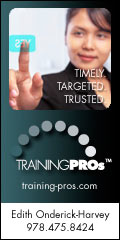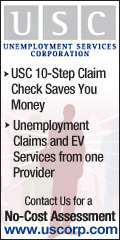
| July 2011 | Past Issues | Advertise |
Becoming a Top CHRO: How HR Leaders Build Credibility for Themselves
Since its doors opened with one store in 1971, Starbucks has become one of the top known brands in the world. Under the leadership of Howard Schultz, the brand has grown to amass over 17,000 stores worldwide. People don’t just admire Starbucks for its coffee; the brand is admired for its reputation as an employer. The admiration of the company’s culture has undoubtedly been a force in the company’s quick growth. This culture was no mistake; as Schultz describes, he set out to create a culture that focused on its employees. Seeing his blue-collar parents work hard and receive little respect in return, Schultz sought to value and respect his employees. By walking the floors of the company’s roasting plants and praising employees, he created a pillar example of how to build a culture "for the people," and to ultimately profit from it. As many senior HR leaders know, not every CEO shares the sentiment of Howard Schultz. HR often plays a backseat role when compared to finance, marketing, engineering, or other functions. While CEOs know that HR is important, it’s often not given a seat at the table. Senior HR leaders, as "keepers of the people," need to establish credibility for themselves and earn that seat at the table; for themselves and for the employees they represent. CEOs need to rely on their CHROs to maximize the company’s return on its investment in people. By strategically becoming an advisor to the CEO, top HR leaders can achieve this, and in turn advance their own career goals. Developing a powerful presence at the overall C-level will help CHROs extend this credibility with the rest of the leadership team. Communication skills are at the core of each of these essential leadership strategies. Trusted Advisor to the CEO The smartest CEOs surround themselves with people they trust and know will give it to them straight. CEOs want leaders who are credible - meaning they are honest, forward-looking, skilled and inspiring. As a trusted advisor, your job is to engage and help energize the leader of your organization; to broaden your CEOs perspective and help him/her with insights that are critical to understand and consider. As a trusted advisor you must be able to communicate important insights effectively. CEOs hear about problems all day long and they sit in meetings where they view presentations both formal and informal. They have a strategic focus and very limited time, so they are constantly prioritizing input and actions to determine where to focus and how to invest valuable resources. As a business strategist and valued advisor, you are obligated to get to the "big idea" quickly. The "big idea" is one that your CEO instantly recognizes, and something that immediately conveys what the business needs. When this is a "game changer", you’ve demonstrated your understanding of the big picture, aligned yourself with your CEO’s strategy and priorities and saved valuable time. The most trusted advisors are those whose big ideas are compelling, and communicated clearly and concisely. Presence at the C Level |
|
303 Wyman Street, Suite 285, Waltham, MA 02451-1253 |
 |



